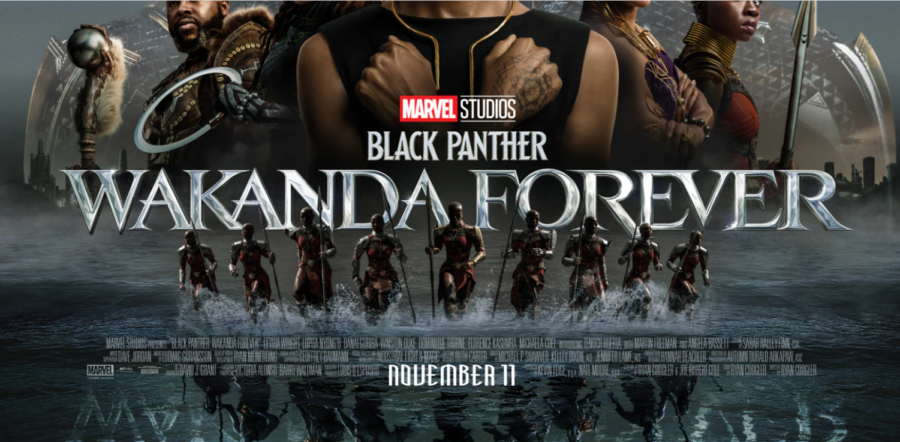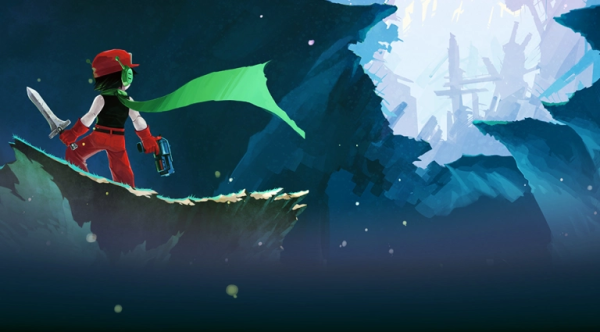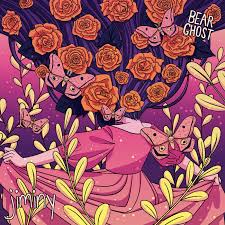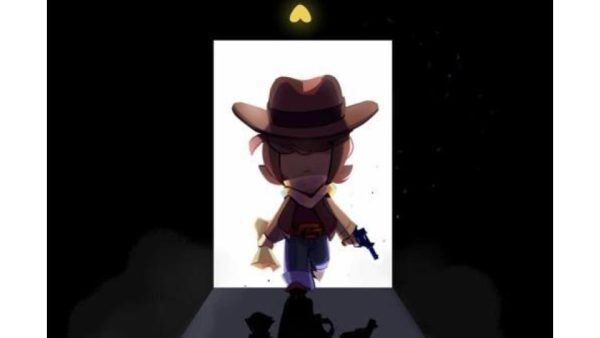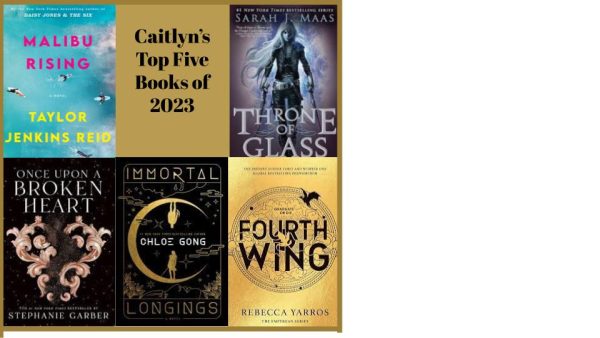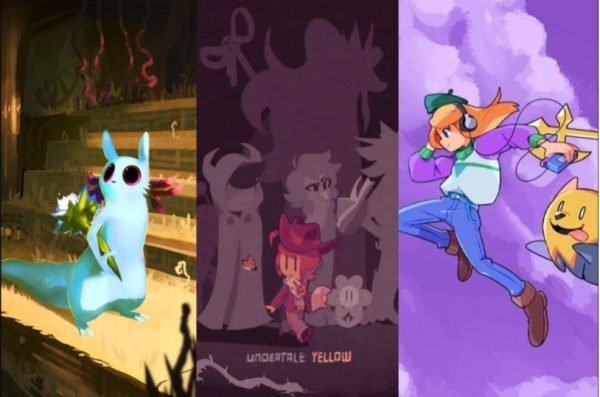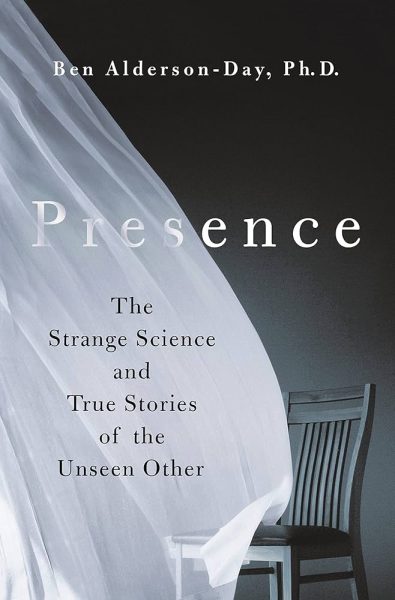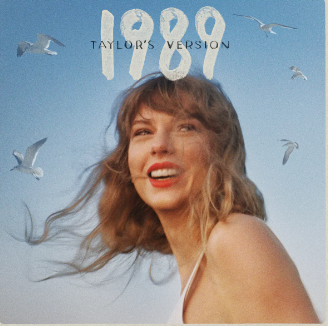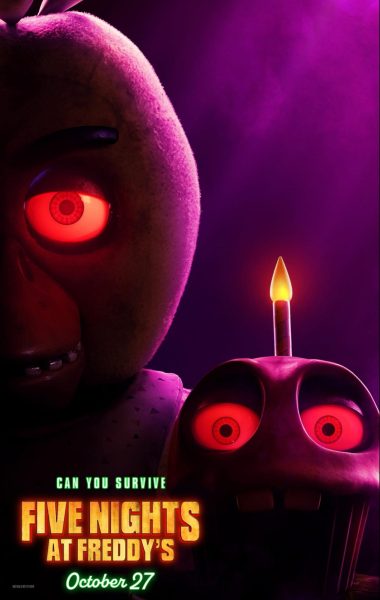Black Panther: Wakanda Forever is Worth Watching Multiple Times
November 28, 2022
I’m going to preface this article by saying that this contains major plot spoilers about the new Black Panther: Wakanda Forever movie. I personally believe both of the Black Panther movies changed film, how Black culture is shown in film, how Afro-futurism is portrayed in film, and African American culture as a whole is viewed and interpreted by those who may not experience it every day.
Other than Black Panther there are very few, if you can name any, widely popular movies that portray Black people as something other than someone who can be killed by police or victim to Black-on-Black crime or victim to drugs or be inherently violent. The popular movies about African American culture often speak on injustice and trauma as opposed to fun times and successes.
Shuri, the Black Panther, and Riri Williams, who was introduced to us in Wakanda Forever, are some of the only scientists in the MCU that Black children can relate to, though the movie falls short of including any Black male scientists as main characters. Black Panther also made it apparent how little diversity we really have when it comes to superheroes and Black fictional characters in general. After the release of Panther in 2018 many more movies with diverse casts became a recurring thing. And I believe the new Black Panther accurately portrays Mayan and Aztec culture while balancing the main plot of the country of Wakanda.
The movie explored the 5 stages of grief portrayed by most of the main characters but most obviously Shuri throughout the movie. It begins with Shuri praying to the god Baast to save her brother as she tries to create something to save him from his deadly illness. Referencing Chadwick Boseman with his fatal battle with colon cancer, the storyline in the movie frequently references how T’Challa passed while hiding his cancer from even his closest friends. The movie took “in memory of Chadwick Boseman” to an entirely different level than we have seen in the MCU or in the film industry in general. There were important conversations about grief and intersectionality as well as exposing struggles both Black and brown people go through because of colonization.
In the funeral held for T’Challa, they wore all-white funeral robes as seen in many African civilizations to represent the death of a loved one. Shuri holds on to her funeral robes for a year after T’Challa’s funeral because she can’t let go of the past which is the first stage of grief, denial. She quickly moves on through the other stages but somehow always ends up back in anger. Angry that she couldn’t save T’Challa, angry she couldn’t save her mother, and angry when she is forced to look in the mirror to really see if she is like her cousin Killmonger. And to add to what I think it was important to show the contrast between Shuri and Killmonger because they were both out to avenge their loved one’s death, both handled it violently and both showed their arrogance in the suit with gold highlights instead of silver like T’Challa when he was the noble Black panther king.
Namor, who is also called or K’uk’ulkan, was a mutant king of another secret nation called Talokan. The movie highlighted his flaws by showing how Shuri handled similar situations. When Namor lost his mother to natural death he brought her out of the water and onto land of the Yucatan peninsula where the natives were enslaved. He then burned the buildings and killed the village of colonizers just to lay his mother to rest, stage one of grief and anger. Shuri lost her mother to a flood Namor caused later to start a war, and Shuri threw herself into becoming the Black Panther and recreating the heart-shaped herb, stage 3 bargaining.
One part I personally did not like about the movie is the tendency to jump to fighting. In the first movie, they made it clear they do not interfere with the outside world and its wars but in the second movie they proceed to go into a pointless war with a nation they could have easily made an alliance with before any blood was shed. It just solidified the stereotype of black and brown people being inherently violent. And the pressure on the main women to be strong after losing the love of their life, their brother, king, or son they were always pushing themselves to be strong through it.
I also want to highlight how important it is that Nakia and T’Challa’s son is named Toussaint. He is named after the general who headed the Haitian revolution and liberated them from the French and established the country of Haiti. And his Wakandan name being T’Challa opens the multiverse for him to be king or be a Black panther as T’Challa.
All-in-all, the movie was definitely a great watch and I intend to rewatch it while it’s in theatres sometime soon. Ryan Coogler had perfect execution with this movie and the cast did amazing, especially while wrestling with the loss of Chadwick Boseman. I do believe many of the grieving parts of this movie were raw real emotions and them really dealing with the loss of a friend not just the character.
